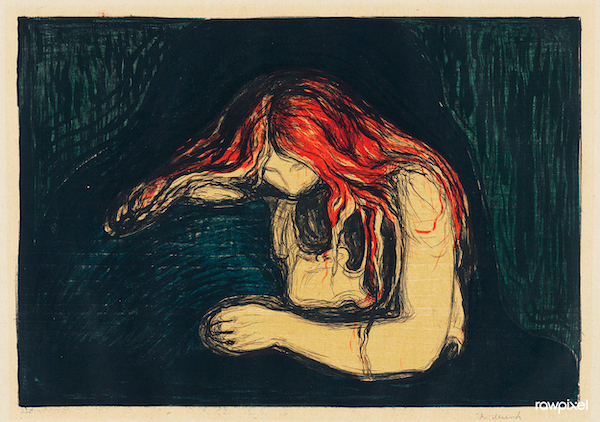Human beings are complex characters.
We have all been hurt, and we have all hurt someone. It might have been unintentional—I’d like to believe that kindness and humanity still exist in the world—but the trauma can’t be denied.
We all have wounds. Some of us are aware of their gaping size, while others are in denial about theirs. Such people roam around in the world with their brokenness and pour that into other vulnerable beings. It comes out in the form of physical abuse, emotional abuse, lies, deceit, manipulation, jealousy, anger. Well, you get my point.
December 2020 felt heavy. Not just because the holiday season in the year of the pandemic was different and we were surrounded by suffering instead of loved ones, but also because I uncovered that I hadn’t forgiven a few people as they repeated their caustic behavioral patterns during the holiday season. I didn’t want to feel so deeply, but I couldn’t let my mind disconnect completely. Gosh, I felt like a prisoner of my emotional baggage.
Secondly, in December 2020, I emailed the manuscript for my upcoming book, A Piece of Peace, to the publisher. The book is a collection of essays that acknowledges my illness, the journey to recovery, and the person I have become as a result of it. Writing and revisiting my experiences triggered me on a deeper level.
Two Decembers ago, in 2018, I was in the hospital undergoing a complicated surgery for a chronic illness that showed up suddenly in my life out of nowhere. Several of the doctors I have spoken with and articles/studies I have read…they all acknowledge the role of stress and trauma in chronic illness. The timeline: when I fell sick, how it happened, what led to it, who contributed to it all, the manipulations, my struggle with life and death…the whole nine yards came flashing in front of my eyes.
Marc David in his book, The Slow Down Diet, talks about the power of forgiveness. He writes, “I’m still amazed at how those who’ve had long-term eating disorders, chronic fatigue, digestive complaints, and a host of debilitating symptoms see miraculous relief when forgiving people from their past and present.”
When I fell sick, I was seething and wanted “justice” from the universe. When people hurt us grievously, we feel the urge to get even—emotionally, mentally, or physically. We might even declare that we have the right to do so. How could I be sick when I tried to be a good person and led a mindful life? How could those who hurt me be healthy and happy when they were a big reason I found myself in the ER, fighting for my life?
However, very soon I realized that the desire to get even fills us with resentment, anger, and vengefulness. I didn’t like feeling that way. I didn’t want to be that person. I didn’t believe I deserved any of the pain; I didn’t wish anything bad for those who hurt me. And I didn’t want to navigate the world through the lens of toxicity. I believe that pent-up negativity can hurt us more than anything else. True healing can’t begin without forgiveness, so I forgave (or thought I did) those who hurt me.
Inside my head, I was over what had transpired in 2018 and the years leading up to my illness. I healed physically after my surgery; I learned to build healthy boundaries, but I forgot that emotional healing has its own path and takes its own time.
Forgiveness is an essential ingredient in emotional healing. But saying you forgive someone isn’t the same as forgiving someone.
I had rushed forgiveness, and I asked myself why. Oftentimes, we are told that if you are a decent human being, you should forgive right away. I wanted to be that good person. I also felt pressured by those around me (however well-intentioned) to forgive those who had hurt me so we could talk about other things and “move on.”
Honestly, I so wanted to be done with being angry and hurt. I didn’t want to focus on those who hurt and disappointed me. I wanted to nourish and give my energy to those who nourished me. I wanted to end the control these offenders had on my emotions and eventually health. I wanted the heaviness in my heart and the weight on my shoulders to leave me. I didn’t want to be chained to difficult memories because that stunted my inner growth.
I chose forgiveness. I figured that forgiveness was a shortcut to healing. I thought I could bypass the pain and angst if I chose forgiveness. In the Bhagavad Gita (16.3), Lord Krishna declares forgiveness to be a godly quality foundational for liberation and is contrasted with the anger and harshness that characterize the ungodly who stay in bondage.
When you go through the process of truly forgiving someone, your life feels lighter. You don’t bring that baggage with you everywhere you go. You don’t play victim. You aren’t always triggered. You feel empowered and in control.
Over the holidays, I disconnected from social media and turned inward. I didn’t want to drag the achiness with me into 2021. I hired a wonderful holistic life coach (Day Singh whom I highly recommend) to seek her expert professional opinion on how to forgive. I had tried to do it on my own and clearly not succeeded. She told me that I could give myself permission to grieve and mourn what I had lost. I needn’t ignore the pain I was in. She reminded me to stay patient and kind to myself.
Interestingly, the more I meditated on forgiveness for those who hurt me, the lighter I felt. I understood that while some resentments seem to vanish forever, others certainly come and go. Most importantly, I also accepted that 100 percent forgiveness is temporary. That is why you practice forgiveness and compassion on a daily basis.
In this process of letting go, detaching emotionally from my offenders, and practicing kindness and forgiveness, I received more clarity: I suspected that the people who hurt me might be struggling with mental illness themselves. They had exhibited signs over the years, but no one would dare to bring it up with them. While that doesn’t excuse their behavior, I started to see them as complicated beings battling their own demons and lashing out at anyone walking in their own light and truth. I started to recognize that the problem was them, not me. Such a liberating feeling.
Trust me—forgiveness isn’t a walk in the park, but a bit of practice can help us. I can tell you that forgiveness can bring you closure. You feel a sense of healthy detachment where the person who hurt you—their presence or absence; their words or silence—doesn’t shake you. You remain calm in the eye of the storm. No expectations. No attachment to any outcome of engagement with them.
Forgiveness can help us reclaim ourselves. I hope you give it a try in the New Year!
~








Read 9 comments and reply